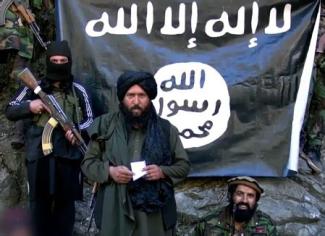Humanitarian aid
“More, not less commitment”
 picture-alliance/dpa
Early this year, ISIS declared it had built a presence in Pakistan and Afghanistan.
picture-alliance/dpa
Early this year, ISIS declared it had built a presence in Pakistan and Afghanistan.
When ISIS troops took over the towns of Mosul and Tikrit in Iraq in June 2014, the global public became aware of this terrorist organisation. In December last year, the International Organisation for Migration (IOM) estimated that some 2 million internally displaced persons had fled ISIS in Syria and Iraq. According to UN data, some 3.6 million people are currently living under ISIS-control.
The internally displaced persons are particularly in need, but they are mostly beyond the reach of humanitarian organisations. Experts from the London-based Overseas Development Institute state that the people concerned only get very little aid. International agencies as the World Food Programme (WFP), for instance, can only operate undercover. Furthermore, stores and medical supplies must be shipped in bags without agency logos. As international staff cannot be deployed, the humanitarian agencies depend on local partners, especially civil-society organisations (CSOs). In a recent publication, moreover, the ODI’s Humanitarian Policy Group highlights the need for good relations with tribal leaders.
The scholars admit that ISIS benefits from the work of humanitarian agencies. The Islamists have published video clips showing fully-stocked supermarkets in Mosul and militia members distributing relief goods. They want to shore up their public image by pretending to be the ones who provide relief, but that is not true, warn the ODI experts. They rely on witnesses who said that ISIS-fighters raided entire villages and used the stolen goods in support of people in other places.
A matter of negotiation
According to the ODI publication, aid agencies should nonetheless make use of the willingness of ISIS to tolerate some humanitarian aid. Moreover, aid agencies are advised to negotiate access to more ISIS-controlled territory. One dilemma is inevitable however: agencies cannot succeed without cooperating with ISIS, but such cooperation is dubious in ethical and legal terms. According to some counter-terrorism laws, delivering goods to ISIS-controlled areas can be punished. In the eyes of the ODI team, however, humanitarian aid must be the priority. The authors insist that international law permits negotiations with all parties involved in any given conflict.
The ODI working group suggests aid agencies should become engaged in negotiations directly or indirectly in order to reach more people. They argue that this approach has proved successful in Somalia and Afghanistan. While they cannot tell whether it will work out in Syria and Iraq as well, they emphasise the need to establish networks as soon as possible and to rely on local partners. For humanitarian work to be effective in ISIS-controlled areas, there needs to be more commitment, not less, they argue.
Theresa Krinninger
Link:
HPG Crisis Brief: Aid and the Islamic State.
http://www.odi.org/publications/9133-iraq-isis-isil-aid-humanitarian

